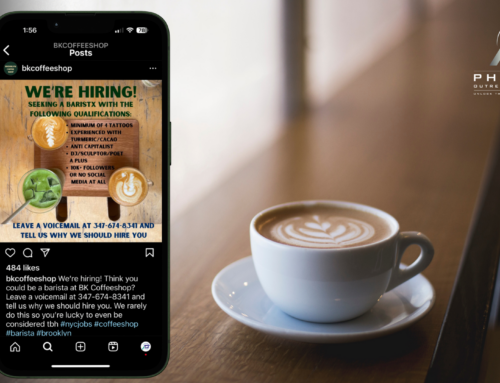The success of workforce development efforts hinges on early childhood education; the impact of foundational early learning experiences is immeasurable. The Week of the Young Child (#WOYC24) held from April 6-12, 2024, and sponsored by the National Association for the Education of Young Children, offers a poignant reminder of this, presenting an opportune moment for boards and workforce organizations to reiterate their commitment to the holistic development of future generations. This week-long celebration is not just about acknowledging the importance of early childhood education; it’s about reinforcing the connection between early developmental support and long-term workforce success.
Strategic Engagement: How Boards Can Drive Value
Boards and decision-makers wield considerable influence in shaping the conversation around early childhood education and its integration with workforce development strategies. By championing initiatives that emphasize the importance of early learning, they can create a ripple effect that benefits not only children and their families but the broader community and future workforce.
Here are ways boards can engage:
- Public Advocacy and Awareness: Boards can use their platforms to advocate for policies and practices that support high-quality early education and child care, emphasizing the long-term benefits to workforce development and economic growth.
- Partnerships with Educational Institutions: Establishing partnerships with preschools, kindergartens, and organizations focused on early childhood development can facilitate programs that educate parents and children about the vast spectrum of career possibilities and the skills needed to navigate future job markets.
- Investment in Employee-Friendly Practices: Implementing family-friendly workplace policies that include support for child care can serve as a model for how investments in early childhood care contribute to a more engaged, productive, and loyal workforce.
The Role of High-Quality Child Care in Shaping Future Talent
The correlation between early childhood education and subsequent success in the workforce is well-documented. High-quality child care plays a pivotal role in developing the cognitive, emotional, and social skills essential for future learning and employment.
Here are examples underscoring this importance:
- Skill Development: Early education centers that focus on play-based learning are not merely facilitating entertainment; they are cultivating critical thinking, problem-solving, and social interaction skills. These are foundational competencies that are increasingly sought after in the modern workforce.
- Emotional and Social Intelligence: High-quality child care environments offer children their first taste of social interaction and emotional regulation outside the home. The ability to navigate complex social environments and work collaboratively with others is invaluable in virtually every career path.
- Lifelong Learning and Adaptability: The early years of a child’s life are crucial for instilling a love of learning and an adaptability to new situations and challenges. These traits are essential in a rapidly changing job market where continuous learning and flexibility are keys to success.
Outreach Approaches
Kristin Wise, a multimedia specialist with BakerRipley, and a highly esteemed colleague of mine 🤗, excels as a child care storyteller with a unique talent for blending the art of narrative with digital outreach focused on high-quality early-learning. Leveraging the dynamic platforms of social media and blogs, Kristin skillfully showcases the critical importance of early childhood education. Through her engaging and insightful content, she illuminates the myriad of ways in which foundational learning experiences significantly impact children’s development and future potential. Kristin’s approach not only educates her audience on the value of early education but also inspires a broader conversation about its role in shaping a brighter future for our youngest learners. Her work serves as a compelling call to action, encouraging parents, educators, and policymakers alike to prioritize and invest in the early years of child development.
To help you celebrate the Week of the Young Child (#WOYC24), here’s a multifaceted outreach strategy aimed at highlighting the vital role of early childhood education in laying the groundwork for children’s future success and the development of a skilled, diverse workforce:
- Social Media Campaigns: Launch engaging social media campaigns across platforms like Instagram, Facebook, and Twitter using the hashtag #WOYC24 to raise awareness about the importance of early childhood education. Include tips for parents, fun facts, and interactive content like quizzes and live Q&A sessions with early childhood educators.
- Community Events: Organize community events such as open days at local child care centers, storytelling sessions in libraries, and educational workshops for parents and caregivers. These events can serve as both a celebration of young children and an informative session on the developmental benefits of early childhood education.
- Partnerships with Local Businesses: Collaborate with local businesses to create themed activities or promotions that highlight the Week of the Young Child. For example, local bookstores could host children’s book readings, while cafes could offer special family-friendly menus.
- Educational Webinars: Host webinars featuring experts in early childhood education, child psychology, and workforce development. These webinars can cover topics such as the long-term benefits of early education, innovative teaching methods, and how to support children’s learning at home.
- Engagement with Schools and Childcare Centers: Work with schools and childcare centers to send home information packets or host virtual information sessions for parents. These can include activities for parents to do with their children that emphasize learning through play, as well as resources for additional support services.
- Media Outreach: Secure media spots on local radio stations, television, and newspapers to discuss the Week of the Young Child, emphasizing its significance for community growth and workforce development. Share stories of successful early childhood education programs and their impact on children’s futures.
- Public Policy Advocacy: Use this week as an opportunity to advocate for public policies that support early childhood education. This could involve organizing letter-writing campaigns to legislators, creating policy briefs, and mobilizing community support for increased funding and resources for early education programs.
- Interactive Online Content: Create engaging online content such as educational videos, interactive e-books, and downloadable activity sheets for parents and children. This content can be shared widely on social media, educational websites, and through partnerships with influencers in the parenting and education sectors.
- Corporate Engagement: Encourage corporations to participate by sponsoring events, providing volunteer opportunities for their employees, and sharing information about the Week of the Young Child with their networks. This can broaden the reach and impact of the campaign.
- Celebration of Diversity: Highlight the importance of inclusive education that respects and celebrates diversity. Organize multicultural events, share stories from diverse families about their early learning experiences, and emphasize the value of exposing children to diverse perspectives from an early age.
By employing a multiplatform outreach approach, the Week of the Young Child can become a powerful catalyst for promoting early childhood education and its critical role in shaping the workforce of the future.
A Call to Action for Workforce Development
As we celebrate the Week of the Young Child, let’s acknowledge and act upon the undeniable link between early childhood development and the future of our workforce. Boards and governance bodies have a unique opportunity to lead by example, demonstrating the tangible value of investing in the early years. By fostering environments that support high-quality child care and early education, we are not merely aiding individual families; we are taking a proactive step towards securing a resilient, skilled, and innovative workforce for the future.
In embracing #WOYC24 within workforce outreach efforts, we affirm our commitment to the principle that the well-being and development of our youngest citizens are critical to our collective prosperity. Let this week be a catalyst for action and advocacy, as we strive to build a stronger foundation for tomorrow’s leaders, innovators, and workers.






